![Freedom Of Expression: Editor Scott Allie On The ‘CBLDF Liberty Annual 2013′ [Interview]](http://townsquare.media/site/622/files/2013/08/cbldflibertyannual2013main.jpg?w=980&q=75)
Freedom Of Expression: Editor Scott Allie On The ‘CBLDF Liberty Annual 2013′ [Interview]
Earlier this month, we offered up a preview of the upcoming CBLDF Fund Liberty Annual 2013 the newest anthology comic that benefits the efforts of the Comic Book Legal Defense Fund. Now, we're bringing you an interview with Dark Horse Comics Editor-in-Chief Scott Allie, who's serving as editor of this year's issue being released by Image Comics on October 31.
We talked with him about story selection, how history and current events can inform the comics community, Internet comments and lots more.
ComicsAlliance: There's a really interesting mix of stories in here. Alongside a story about current events and Pussy Riot, you have a Hack/Slash story, a Hoax Hunters story, a couple parodies, some censorship history, and a story about a Western movie shoot. How did you determine what stories would go in the book this year?
Scott Allie: I went out to a bunch of people that I thought would have something interesting to say along a certain theme, and asked for ideas. Some people gave me multiple options, and I selected the ones that struck me just right. Sometimes what happens is that someone pitches you something that clashes or complements something that came in earlier, and that affects what you get. And I was fairly hands-on, for the most part, in terms of sort of directing the stories that I did accept, to create the mix I was looking for.
CA: Is there a particular theme you were looking for with this year's issue?
SA: Yeah. It evolved a lot, but when it started, when I first asked for stories, the theme I outlined was the idea that artists need to be free to tell their stories their way, if their stories are going to be truthful and therefore worthwhile. As the project proceeded, the theme evolved. Some stuff came up about real life heroes along the way, and the role of artists in the theme sort of mixed with media, in various ways.
CA: I was really interested to see a Pussy Riot story here. How do you think that story lines up with what's happening in comics right now?
SA: I think that story is just a perfect expression of the constant need for artists to challenge themselves to be bold. It touched a nerve around the world because here were people truly fearlessly going out there to express themselves. We don't have challenges like that in comics, and Leah's story is sort of about how if they can do that, we should be doing a hell of a lot more. I asked Leah to pitch me a story about real life heroes. She pitched me a handful, and I picked this one—and I picked the the Paul Morgan story from Paul Tobin—because they're real life heroes as well as artists who wouldn't back down.
CA: The Paul Morgan story is really interesting. It's kind of a bummer in the end! What do you hope readers take away from that story?
SA: You know, a couple years ago Russell Crowe accepted an award for some s**tty movie he was in [A Beautiful Mind]. It was shortly after 9/11, and he got up there on that stage and he talked about his friend Ron Howard and the bravery with which Ron Howard approached his work. Crowe used the word courage liberally in the speech. Now you're talking about a guy who makes millions of dollars and has unpaid interns bringing him lattes all the livelong day—and this was less than a year after a bunch of cops and firemen ran into collapsing skyscrapers thinking maybe they could help someone. I love Ron Howard—hell, I really love Joss Whedon, but I don't tell him he's courageous for making Avengers. (It's his dancing and white water rafting that define his courage.) I think Vince Gilligan makes some ballsy choices, but sometimes artists do need to be genuinely courageous. If you love the arts, if you love artists, it's worthwhile to remember that, and we should do our part to make sure those expressions of genuine heroism aren't forgotten.
CA: The Captain Midnight story is about something close to my own heart: Obnoxious internet comments. That seems just like a fun one, though, yes?
SA: No, that one's really important. As the themes were coming together for the book, I saw that it wasn't only about artists, it was about the media, and the importance of truthfulness in the media. Hoax Hunters gets into that too. At the same time, in the actual monthly Captain Midnight comic, that theme was being touched upon. I wanted to touch specifically on the idea of the viewers' responsibility, because in Hoax Hunters we kind of make fun of the viewers' inability to discriminate.
CA: And then there's the story here about what it would have been like if Wertham was actually right about comics. It never gets old sticking it to that guy, does it?
SA: I actually had no intention of addressing him directly until Josh pitched it. I wanted him to do the Captain Midnight story, because he was already treading on that territory in the monthly book. So one night he came over to my house and I told him I was doing the CBLDF annual, and I wanted him to write something for it. He blurted out, "I already got an idea"—and out came "What if Wertham Was Right." And I said, " … Crap. That's great. But I also need you to do something with Captain Midnight." And that's why Josh is the only writer in the book twice.
More From ComicsAlliance









